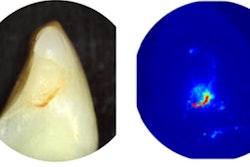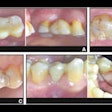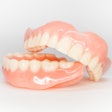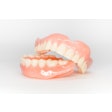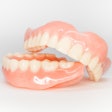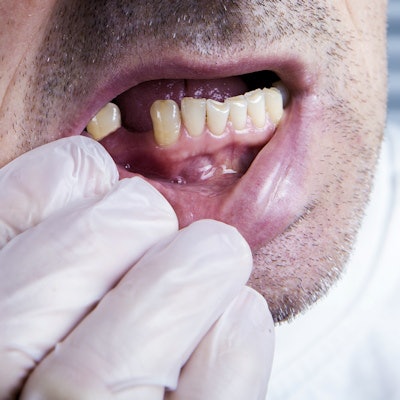
Oral health is tied to everything from Alzheimer's disease to arthritis, but the evidence on the association between the mouth and mortality is still lacking. Researchers analyzed the link between tooth loss and death in older adults in a study published recently in the American Journal of Preventive Medicine.
Oral health issues cumulate later in life and negatively affect older adults. In the U.S., 93% of adults age 65 and older have had dental caries in their permanent dentition, and about 20% have untreated caries. Another 64% are affected by periodontitis, which can ultimately lead to tooth loss and edentulism.
Oral health shares common risk factors with mortality, making it difficult to isolate its net effect on the risk of mortality. Addressing the selection bias among older adults is critical to understanding the extent to which oral health and mortality are associated.
"A possible explanation is that individuals with tooth loss, especially edentulism, are more likely to experience malnutrition because of impaired masticatory function and limited food choices, leading to reduced function of the immune system and elevated mortality risk," wrote the study authors, led by Dr. Jiao Yu of the University of Minnesota (Am J Prev Med, September 21, 2022).
Researchers gathered data from the third National Health and Nutrition Examination Survey that were linked to National Death Index mortality data. A total of 4,880 community-dwelling adults age 60 and older were included in the data. Researchers analyzed subjects' self-rated oral health status and objective clinical indicators, such as edentulism, periodontitis, and untreated caries.
Both objective and subjective oral health are related to mortality among older adults. The link between edentulism and mortality suggests that older adults with significant tooth loss are at a higher risk of mortality.
Further analyses showed that only participants with edentulism who did not wear dentures had a significantly higher mortality risk, confirming the role malnutrition plays in the association between edentulism and mortality.
The effects of periodontal diseases and caries on mortality were found to be insignificant. However, untreated dental caries and periodontal conditions are the leading causes of edentulism.
"Although models show nonsignificant findings, early interventions are imperative to prevent those less severe oral problems from developing into edentulism, which substantially impacts older adults' longevity and quality of life," explained the study's authors.
Although oral diseases are public health problems that affect the quality of life of all age groups, socioeconomically disadvantaged older adults may be particularly vulnerable considering their limited access to dental care.
"Improving access to dental screening and treatment among community-dwelling older adults has the potential to reduce oral health-related risks of morality," Yu and colleagues concluded.






